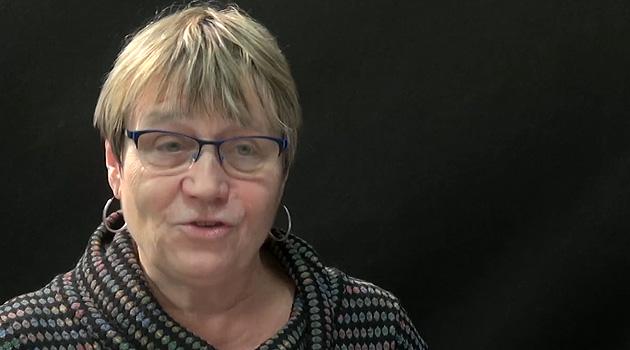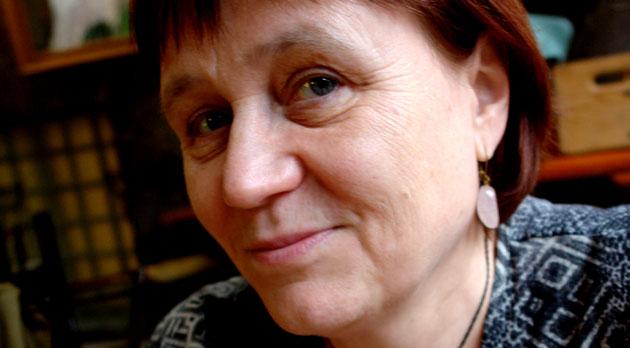Czech Public Defender of Rights recommends 10 measures to improve Romani integration into mainstream schools with non-Romani children

The Office of the Public Defender of Rights in the Czech Republic, Anna Šabatová, has put together a list of 10 measures for the improved integration of Romani children into mainstream schools together with non-Romani children, such as improving the preparation of teachers for leading ethnically diverse collectives or balancing pupil enrollments so as to make sure collectives with equal representations of non-Romani and Romani pupils are created in the schools. Veronika Bazalová of the Office of the Public Defender of Rights communicated the list to the Czech News Agency on 12 December.
The 10 measures are:
1) Achieve high-quality preschool education of non-Romani and Romani children together.
2) Set up school districts in an appropriate way.
3) Accompany or transport pupils to schools that are farther away (using school buses) with the aim of achieving an equal representation of non-Romani and Romani pupils attending the schools on a particular municipality’s territory.
4) Convince school managements that educating all children together is meaningful and have them expressly declare this in their own education programs for the school.
5) Prepare teachers well to work with ethnically heterogeneous classroom collectives through continuing professional education, sharing good practices between schools, internships at schools, and mentoring.
6) Provide the aid of other school staffers with such preparations, both non-pedagogues and pedagogues, including teaching assistants, social educators, school assistants, mediators, and support entities outside the school in its locality.
7) Create opportunities for non-Romani and Romani families to encounter each other in the schools with the aim of improving inter-ethnic relations.
8) Provide mentoring and tutoring to pupils in need of it.
9) Prevent bullying and establish a climate of friendship in the school.
10) Aid impoverished families with meeting the financial costs of their children’s compulsory education.
Bazalová said the Office of the Public Defender of Rights performed a survey this year and investigated the problems happening in 10 schools that have experience with educating Romani pupils, finding that principals frequently feel helpless when their schools are attended almost exclusively by Romani children. While the principals themselves are not solely to blame for such situations, they are unable to resolve them on their own even when they do actually attempt to do so, the Office of the Public Defender of Rights found.
Measures that could lead to improving principals’ situations, according to the Public Defender of Rights, need to be undertaken by the Education Ministry and school establishers. On the basis of the survey, the Public Defender of Rights prepared recommendations for the different stakeholders involved that could improve the situations of Romani children in the Czech education system.
Besides the ministry and school establishers, according to the Public Defender of Rights, these stakeholders mainly include the Czech School Inspectorate, principals, educators, parents of pupils and the pupils themselves, NGOs, municipal social welfare departments, social workers, and local police. Šabatová believes that addressing the current state of some of the segregated schools in the country could be done by making sure non-Romani and Romani children are provided a quality education together at preschools, as well as by designing school districts more appropriately.
In her view, local and regional authorities should arrange for children to commute outside their local school districts so as to create collectives that are more mixed from an ethnic perspective. Schools must be convinced that it is meaningful to educate all children together and should expressly declare this purpose in their own education programs.
Preparations for teachers to work with ethnically diverse collectives should also be improved, in Šabatová’s view. Such preparations could be undertaken through continuing education for pedagogues, schools sharing their good experiences with such education, educators visiting other schools, or mentors supporting administrators and educators with this work.
Schools should also have the opportunity to take advantage of the aid of teaching assistants, social educators, and different kinds of organizations beyond the school itself. The Public Defender of Rights also recommends that schools concentrate on preventing bullying and that they offer tutoring to pupils whose progress requires it.
In her view it is necessary to work on creating opportunities for non-Romani and Romani families to encounter each other in the schools that could improve their relations. She recommends impoverished families be given more aid by local and regional authorities when it comes to covering the financial costs of their children’s compulsory education.
Respondents to the survey said the main causes of ethnically segregated education are children’s residency in an excluded locality, inaction by school establishers or inappropriate interventions by them, disagreement among some parents with the idea that children of different ethnicities should be educated together, less willingness on the part of some schools to enroll Romani children, the enrollment of some pupils with greater needs for educational support into schools that are already ethnically segregated, and an absence of political support for systemic solutions. The Czech Republic has long been criticized by organizations both abroad and at home for the segregation of Romani boys and girls away from non-Romani schoolchildren.
The problem is annually pointed out by, for example, Amnesty International. According to a report on the fulfillment of measures meant to contribute to Romani children being included into mainstream schools, more than one-fifth of Romani children attend schools where more than half of their fellow pupils are also Romani boys and girls.
There are more than 77 such schools in the Czech Republic. Of those, there are 12 schools where more than 90 % of the boys and girls enrolled are Romani.
